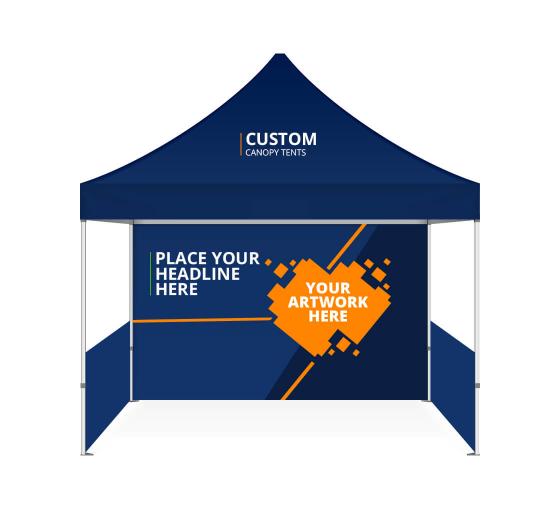While starting a business is an exciting life decision, paying taxes is quite the opposite. It lacks all the thrill and excitement of running a small business, but it certainly can be manageable. Hence, the best way to go about it is to understand the process before you start filing your taxes.
Identify Your Business Structure
“Small business” is an umbrella term that covers different types of businesses. However, the business structure has a direct bearing on one’s tax liabilities, and as such, businesses must start by identifying the business type. Typically, small businesses fall under one of the following categories:
- Sole Traders: This includes self-employed individuals who are the exclusive owners of their business. Accordingly, they’re solely responsible for the success or failure of their business. It typically includes professionals like freelance writers, web developers, business consultants, plumbers, etc., who offer some form of service for payment.
- Partnerships: These are formed when two or more people formally decide to start a business venture with the purpose of making a profit. All the partners own the business and are equally responsible for the profits or liabilities of the business.
- Limited Companies: In limited companies, the business is a separate legal entity decoupled from the business owners or the people operating it. Such a structure limits the liabilities of the owners, which offers a layer of protection in case the company goes into debt.
Which Taxes You Need to Pay

Now, depending on the structure of your small business and other factors, such as the products and services you sell, the business health, and performance, you may have to pay some of the following taxes:
1) PAYE
Self-employed individuals and businesses registered as employers are responsible for the PAYE (Pay As You Earn) tax. It is the income tax deducted from salaries.
2) Income Tax
Income tax is the tax applicable to certain streams of income. And while businesses do not have to pay income tax, business owners who are profiting from the business will have to file their income taxes separately.
Income tax applies to individuals with a personal allowance greater than £12,570 (2021-2022). The amount payable depends on the tax bracket. Currently, the income tax has a basic rate of 20%, a higher rate of 40%, and an additional rate of 45%.
3) Corporation Tax
Corporation tax is applicable on the profits earned by limited companies. It is calculated after the payment of salaries or any other business expense and before the withdrawal of dividends. At present, corporation tax is fixed at a flat rate of 19% regardless of the profit.
4) Value-Added Tax
Most goods and services attract Value-Added Tax (VAT). VAT-registered companies, generally those having an annual taxable turnover of less than £85,000 (2021-2022), must charge their customers VAT on top of the prices.
The standard VAT rate is 20% but can be subsidized to 5% for items like home energy and children’s car seats.
5) National Insurance
If your small business employs people, you’re also liable to pay the employer’s contribution to the National Insurance. Businesses pay 13.8% as National Insurance Contributions for every employee making more than £9,568 per year (2021-2022).
However, small businesses can curtail their NIC liability to £3,000 if the business is eligible for Employment Allowances.
6) Business Rates
Business rates are taxes applicable to businesses operating from property other than domestic, such as warehouses, factories, offices, shops, etc. These are calculated by the Valuation Office Agency (VOA) based on the commercial property’s rateable value.
Small businesses have some relief from business rates if the property’s rateable value is less than £15,000. In case the rateable value is less than £12,000, the business rate may even be zero! Contact your local council to know more about business rates.
Organise Your Business Transactions
Once you’ve done your research on total tax liabilities, now comes the most monotonous part of doing taxes – organising business transactions. Keep all your receipts and invoices handy.
The best way to avoid any last-minute panic is by organising this information every month. Also, keep your PIN and UTR at hand. Read up on any tax-related information or brochures that could share updated news on changes, if any.
Deduct Your Claims
The HMRC offers small reliefs to small businesses to cut down their total tax liability. In the wake of the pandemic, additional relief was also offered to small businesses and those operating from home.
After going through this information, calculate how much you can claim as part of your costs for council tax, heating and electricity, internet and phone, rent, stationery, office equipment, accountancy fees, etc.
File Your Taxes on Time

Businesses that fail to file their tax on time may have to pay a fine of £100 after the deadline on the 31st of January. Plus, this fine will accrue interest if you delay filing taxes any further!
Consult an Expert
Small business owners have various responsibilities and obligations to the government, and taxes are just one element of this. You may be required to set up compliance signs, floor decals, or shelf signs across your workplace to ensure your staff’s safety.
Such measures could also reduce your tax liabilities as you could possibly claim such expenses. Consult an expert to prevent the Companies House from penalising you.


 Posted in
Posted in 



